Deposilin Injection Powder Iceren Vial 2400 Iu
As a seasoned medical journalist, I‘m excited to delve into the world of Deposilin Injection Powder, a versatile veterinary medication used to combat bacterial infections in various animal species. This comprehensive overview will explore the intricacies of this pharmaceutical powerhouse, shedding light on its indications, dosage, administration, and potential side effects.
| Dosage form | |
|---|---|
| Pack size | |
| Potency | 2.400.000 Iu |
| Manufacturer | |
| Origin | |
| Generic Name (Ingredient) | Each Vial Contains 2.400.000 Iu Of Benzathine Benzylpenicillin (Penicillin G Benzatin). |
Assuming your emergency circumstances for this product, visit Urgent Quotation page. Besides, for any pharmaceutical questions, please ask us in the comments section.
Description
Generic Name: Deposilin Injection Powder İçeren Vial 2400 IU
Active Ingredient: Benzylpenicillin Procaine (Ph.Eur.) 300,000 I.U. (300 mg)
Preservatives: Methylparahydroxybenzoate
Non-Medicinal Ingredients: Sodium citrate dihydrate, potassium dihydrogen phosphate, edetate disodium dihydrate, povidone K30, lecithin, sodium hydroxide, phosphoric acid, and water for injection
Deposilin Injection Indications
Deposilin Injection Powder is a versatile medication indicated for the treatment of bacterial infections caused by penicillin-susceptible pathogens in the following animal species:
Cattle
- Bacterial pneumonia
- Calf diphtheria
- Footrot
- Metritis
- Wound infections
Swine
- Bacterial pneumonia
- Erysipelas
- Wound infections
Horses
- Bacterial pneumonia
- Metritis
- Strangles
- Wound infections
Sheep
- Bacterial pneumonia
- Wound infections
Dosage and Administration
The recommended dosage and administration of Deposilin Injection Powder vary depending on the animal species:
Cattle and Sheep
- Administer 21,000 I.U./kg of body weight (7 mL/100 kg or 0.7 mL/10 kg) intramuscularly once daily.
- Continue treatment until 2 days after clinical signs disappear, but do not exceed 5 days of treatment.
Swine
- Administer 15,000 I.U./kg of body weight (1 mL/20 kg) intramuscularly once daily.
- Continue treatment until 2 days after clinical signs disappear, but do not exceed 5 days of treatment.
Horses
- Administer 21,000 I.U./kg of body weight (7 mL/100 kg) intramuscularly twice daily (at 12-hour intervals).
- Continue treatment until 2 days after clinical signs disappear or, in the case of respiratory infections, until 5 days after clinical signs disappear.
- Do not exceed 15 mL per injection site and rotate injection sites for succeeding doses.
Cautions
- In case of anaphylactic reaction, administer epinephrine immediately.
- In pigs, administration may occasionally cause fever, vomiting, shivering, listlessness, and incoordination.
- In pregnant sows and gilts, it may result in abortions.
- If animals do not respond within 48 hours, consult a veterinarian for alternative antibacterial therapy.
Side Effects
Deposilin Injection Powder may cause the following side effects:
| Side Effect | Frequency |
|---|---|
| Nausea | Common |
| Diarrhea | Common |
| Abdominal pain | Common |
| Rash | Uncommon |
| Hives | Uncommon |
| Itching | Uncommon |
| Difficulty breathing | Rare |
| Swelling of the face, tongue, or throat | Rare |
It’s crucial to monitor animals closely for any adverse reactions and promptly consult a veterinarian if any unusual symptoms are observed.
Use in Pregnant Animals
The use of Deposilin Injection Powder in pregnant animals requires careful consideration and consultation with a veterinarian.
Risk-Benefit Assessment
Before administering Deposilin to a pregnant animal, a veterinarian should carefully assess the potential risks and benefits based on the specific situation and the severity of the infection.
Species-Specific Considerations
- In cattle, swine, and horses, Deposilin can be used during pregnancy, but only if the benefits outweigh the risks.
- In sheep, Deposilin is generally considered safe during pregnancy.
Abortifacient Potential
- In pigs, there have been reports of Deposilin causing fever, vomiting, and abortions. Pregnant sows and gilts should be closely monitored.
- If any adverse effects occur, discontinue use and seek veterinary advice promptly.
Individual Variation
Each animal may respond differently to medications. Pregnant animals should be closely monitored for any signs of distress or adverse reactions.
Consult a Veterinarian
Always consult a veterinarian before using any medication in pregnant animals. They can provide personalized guidance based on the specific case and species.
Use in Cats and Dogs
Deposilin Injection Powder is primarily intended for use in cattle, swine, horses, and sheep. It is not recommended for use in cats or dogs.
Species-Specific Use
Cats and dogs have different physiological responses and sensitivities to medications compared to the larger animal species for which Deposilin is approved.
Risk Assessment
The safety and efficacy of Deposilin in cats and dogs have not been established. Using medications not specifically approved for these species can pose risks, including adverse reactions or ineffective treatment.
Alternative Options
Consult a veterinarian for alternative antibiotics suitable for cats and dogs. These animals may require different dosages and formulations based on their unique needs.
Consult a Veterinarian
Always seek professional advice before administering any medication to your pet cat or dog. Veterinarians can recommend appropriate treatments based on the animal’s condition and health status.
Alternative Antibiotics to Deposilin
While natural alternatives can provide some support, they cannot fully replace prescription antibiotics. It’s essential to consult a veterinarian for personalized advice and appropriate treatment options. Some potential alternatives to Deposilin Injection Powder include:
Garlic
Garlic contains active antimicrobial components, such as allicin, ajoenes, and allyl sulfides, which exhibit antibacterial properties and may be effective against multi-drug resistant bacteria.
Honey
Honey has wound-healing activity and antimicrobial properties, with components like hydrogen peroxide and methylglyoxal showing promising therapeutic potential.
Ginger
Ginger is recognized as a natural antibiotic, possessing antimicrobial, antioxidant, anti-inflammatory, and anticoagulant properties. Studies suggest its effectiveness against various bacteria.
Oregano
Oregano has demonstrated antibiotic and antimicrobial activities, with research indicating its effectiveness against strains of bacteria and fungi.Remember, while these natural alternatives show promise, they should not be used as a sole replacement for prescription antibiotics. Consult a veterinarian for personalized guidance and appropriate treatment options.
Conclusion
Deposilin Injection Powder is a versatile and potent veterinary medication used to combat bacterial infections in various animal species. By understanding its indications, dosage, administration, and potential side effects, veterinary professionals can effectively utilize this pharmaceutical tool to safeguard the health and well-being of their patients.
As always, it’s crucial to prioritize animal welfare, closely monitor for any adverse reactions, and seek professional guidance when necessary
Use the form below to report an error
Please answer the questions as thoroughly and accurately as possible. Your answers will help us better understand what kind of mistakes happen, why and where they happen, and in the end the purpose is to build a better archive to guide researchers and professionals around the world.
The information on this page is not intended to be a substitute for professional medical advice, diagnosis, or treatment. always seek the advice for your physician or another qualified health provider with any questions you may have regarding a medical condition. Always remember to
- Ask your own doctor for medical advice.
- Names, brands, and dosage may differ between countries.
- When not feeling well, or experiencing side effects always contact your own doctor.
Cyberchondria
The truth is that when we’re sick, or worried about getting sick, the internet won’t help.
According to Wikipedia, cyberchondria is a mental disorder consisting in the desire to independently make a diagnosis based on the symptoms of diseases described on Internet sites.
Why you can't look for symptoms on the Internet
If diagnoses could be made simply from a textbook or an article on a website, we would all be doctors and treat ourselves. Nothing can replace the experience and knowledge of specially trained people. As in any field, in medicine there are unscrupulous specialists, differences of opinion, inaccurate diagnoses and incorrect test results.

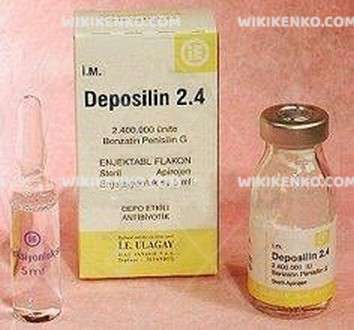
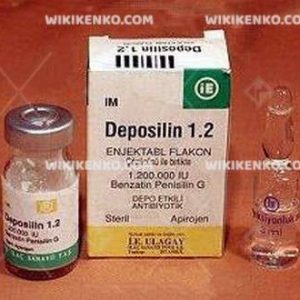
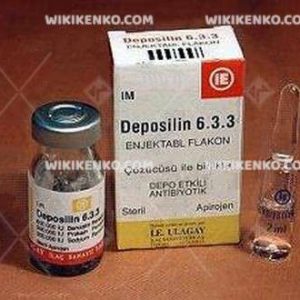

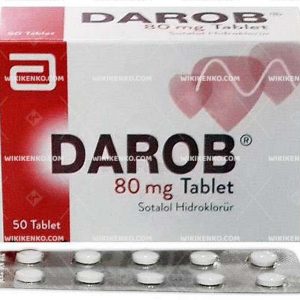

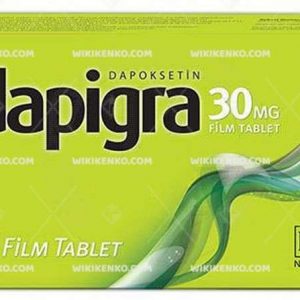
Reviews
There are no reviews yet.